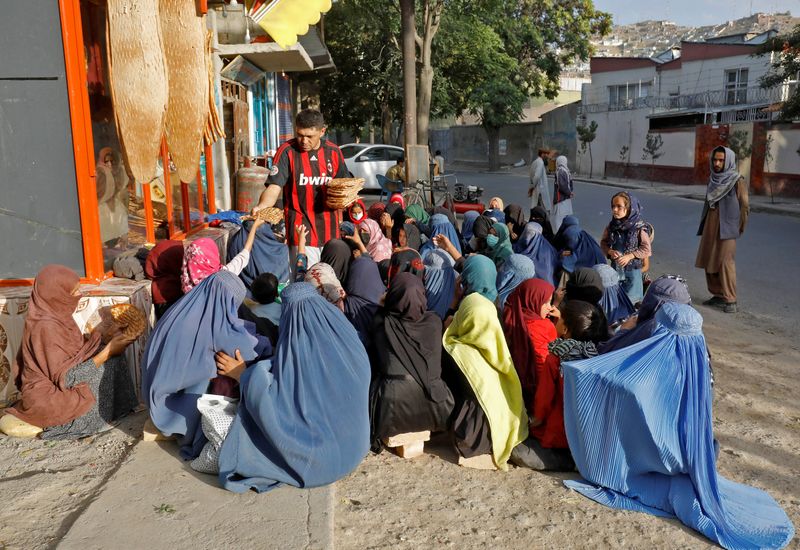U.N. aid chief pushes for restart of Afghanistan development aid
2022.08.30 00:09
5/5

An Afghan girl receives a loaf of bread in front of a bakery among the crowd in Kabul, Afghanistan, August 5, 2022. REUTERS/Ali Khara
2/5
By Michelle Nichols
UNITED NATIONS (Reuters) – Countries should restart development aid for Afghanistan as it faces a worsening humanitarian and economic crisis, U.N. aid chief Martin Griffiths said on Monday, a year after such assistance was halted over the Taliban seizing power.
The country has long relied heavily on development aid, which was cut as the international community demanded the Taliban respect the rights of Afghans, particularly girls and women whose access to work and education has been limited by the Islamist group.
“Poverty is deepening, the population is still growing, and the de facto authorities have no budget to invest in their own future. It’s clear to us that some development support needs to be restarted,” Griffiths told the U.N. Security Council.
More than half of Afghanistan’s 39 million people need humanitarian help and six million people are at risk of famine, said Griffiths. More than one million children are “estimated to be suffering from the most severe, life-threatening form of malnutrition” and could die without proper treatment, he said.
“Afghanistan’s de facto authorities must also do their part. Bureaucratic interferences and procedures slow down humanitarian assistance when it is needed most. Female humanitarian aid workers … must be allowed to work unhindered and securely. And girls must be allowed to continue their education,” he said.
The Taliban has not been formally recognised by any foreign governments and is still subjected to international sanctions, which the United Nations and aid groups say are now hindering humanitarian operations in Afghanistan.
International banks are wary of breaching sanctions and the United Nations and aid groups have been struggling to get enough money into the country over the past year.
“Humanitarians have brought in over $1 billion in cash to sustain programme delivery, but the liquidity and banking crisis continues to impact delivery of assistance and on the daily lives of Afghans,” Griffiths said.
The United Nations has been trying to kickstart a system – described as a Humanitarian Exchange Facility (HEF) – to swap millions of aid dollars for Afghan currency in a plan to stem aid and economic crises and bypass Taliban leaders.
Griffiths said this plan was “still under deliberation” with the Taliban.








